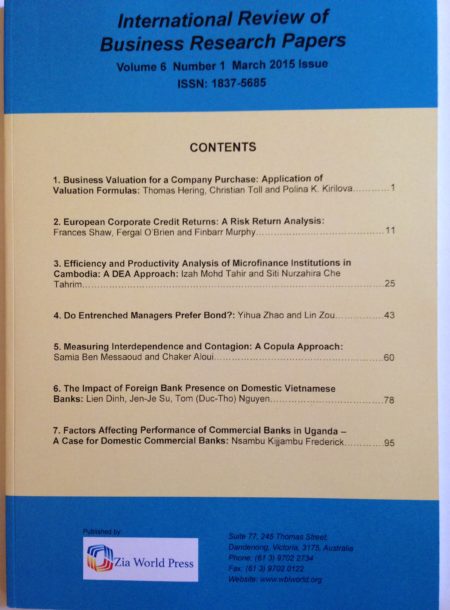International Review of Business Research Papers
Vol. 16. No. 1., March 2020, Pages: 177– 201
Female Labor Force Participation with Adverse Shocks: The Case of Rural Households in Bangladesh
Syed Mortuza Asif Ehsan and Shaharia Akter
The rural households in Bangladesh are vulnerable to several adverse shocks, whose impacts might depend on the socio-economic status, and other regional and physical factors. In this paper, utilizing micro econometric techniques and a rich dataset, the Bangladesh Integrated Household Survey (BIHS) 2015, we investigate how adverse shocks impact female labor force participation in rural areas of Bangladesh. Results obtained from the analyses show households with larger household size, outstanding loans, less education, assets, productive lands, and income, are more vulnerable. Econometrically estimated results suggest that the female household members are significantly more likely to participate in the labor force if the household is adversely affected by a hazard, and such impact is the largest for natural shocks. Additionally, we conclude the likelihood of female labor force participation declines with household-heads’ employment. This paper contributes to the existing literature providing a better understanding of the linkages between adverse shocks and female labor force participation in rural Bangladesh. Results obtained in this paper have important implications for improving shock resilience and poverty alleviation of the vulnerable rural population in Bangladesh.

